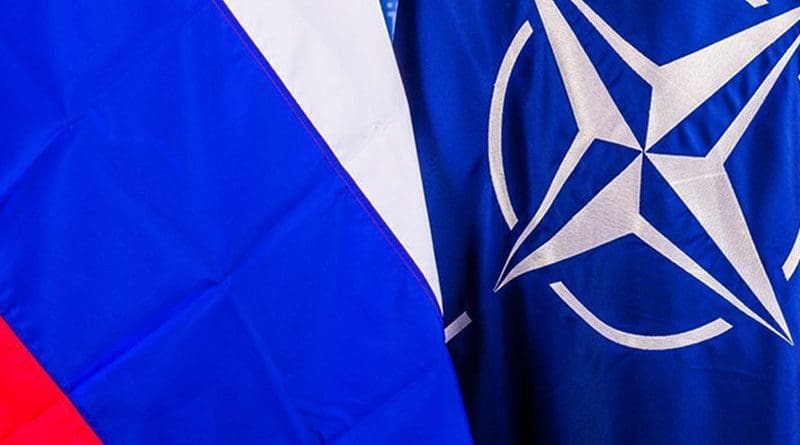Russia Warns Of Direct Conflict With NATO If Troops From Alliance Members Fight In Ukraine
By RFE RL
(RFE/RL) — The Kremlin has warned Kyiv’s European allies that sending troops to fight in Ukraine would lead to the “inevitability” of war between Russia and NATO after France said that, despite a current lack of consensus, “nothing,” including sending Western forces to fight on the Ukrainians’ side, should be ruled out in terms of preventing a Russian victory in Ukraine.
Speaking after a summit of continental leadersin Paris on February 26, French President Emmanuel Macron said there was a “broad consensus to do more and quicker” for Ukraine as participants agreed to create a coalition to supply Ukraine with medium- and long-range missiles and bombs to back Kyiv’s efforts to stave off Russia’s invasion.
Macron told a news conference that “no consensus” existed on the sending of European ground troops to Ukraine, but added, “nothing should be excluded to achieve our objective. Russia cannot win that war.”
Asked about Macron’s remark, Kremlin spokesman Dmitry Peskov said on February 27 that “the very fact of discussing the possibility of sending certain contingents to Ukraine from NATO countries is a very important new element.”
“We would need to talk not about the probability, but about the inevitability [of a direct conflict between Russian and NATO],” Peskov said.
The United States said it had no plans to send ground troops to Ukraine, while Germany, Britain, Spain, Poland, and the Czech Republic distanced themselves from any suggestion they might commit ground troops to the fight.
German Chancellor Olaf Scholz, who attended the Paris gathering, told journalists that what has been agreed among the allies is “that there will be no soldiers on Ukrainian soil sent there by European states or NATO states.”
In Prague, Czech Prime Minister Petr Fiala and his visiting Polish counterpart, Donald Tusk, said their governments were not contemplating such a move.
“I am convinced that we should develop the paths of support that we embarked on after Russia’s aggression,” Fiala told a news conference alongside Tusk.
“I believe we don’t need to open some other methods or ways,” he added.
“Poland does not plan to send its troops to the territory of Ukraine,” Tusk said.
NATO chief Jens Stoltenberg told the AP on February 27 that “NATO allies are providing unprecedented support to Ukraine, but there are “no plans for NATO combat troops on the ground in Ukraine.”
Seeking to clarify Macron’s remarks, French Foreign Minister Stephane Sejourne said the president had in mind sending troops for specific tasks such as helping on mine clearance, production of weapons on site, and cyberdefense.
This could require a military presence “without crossing the threshold of fighting,” Sejourne told French lawmakers.
Zelenskiy, who addressed the Paris meeting virtually, called on European leaders to ensure that Russian President Vladimir Putin “cannot destroy our achievements and cannot expand his aggression to other nations.”
Ukraine relies heavily on advanced weaponry and ammunition supplies from its Western allies, mainly from the United States, to resist increasingly intense assaults by Russian forces who have superiority in manpower and a large supply of ammunition.
Outgunned and outmanned Ukrainian troops have been recently forced to withdraw from some of their defensive positions in the east as a critical U.S. military aid package worth $61 billion remains blocked in the Republican-led House of Representatives.
U.S. President Joe Biden called a meeting of top congressional leaders at the White House, warning of the dire cost of failing to give Ukraine military aid.
The meeting escalated his efforts to unlock the stalled assistance as well as to avert a looming government shutdown as a March 1 deadline on an appropriations bill approaches.
“On Ukraine, I think the need is urgent,” said Biden, who was joined at the meeting by Vice President Kamala Harris. The “consequence of inaction every day in Ukraine is dire,” he added.
House Speaker Mike Johnson (Republican-Louisiana), an ally of former President Donald Trump who leads a razor-thin Republican majority in the House, has refused to allow a vote on the bill that includes the new aid to Ukraine.

